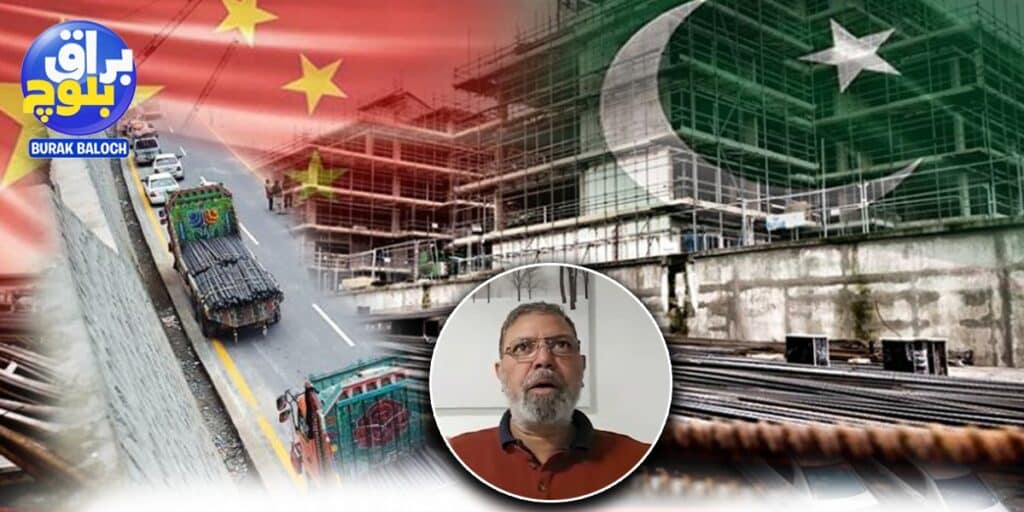By: Ashir Azeem
In recent years, the China-Pakistan Economic Corridor (CPEC) has become the focal point of both hope and controversy. As someone who closely follows national development and strategic initiatives, I firmly believe that CPEC is not just an infrastructure project—it is a generational opportunity that can redefine Pakistan’s economic trajectory.
Yes, challenges exist. CPEC has faced delays, cost escalations, and unfortunately, violent attacks on Chinese personnel. The project’s overall cost has indeed increased by nearly 23% from the original estimates. Security concerns have played a role in this, no doubt. But let me be very clear: none of these challenges are insurmountable, nor do they threaten the viability of the project.
What gives me confidence is the strength of the commitment from both China and Pakistan. This is not a relationship of convenience—it is a strategic partnership based on long-term mutual benefit. Already, over $65 billion has been invested into Pakistan through CPEC, with transformative impacts on our infrastructure and energy sector. By 2018, thanks to these projects, Pakistan’s electricity generation had increased by over 10,000 megawatts—a significant step toward solving our energy crisis.
Critics argue that CPEC is pushing Pakistan into a debt trap. I disagree. These are investments in critical sectors—roads, energy, ports—and their return will be measured in decades of economic activity and improved standards of living. For example, property values in areas along the corridor have risen significantly, directly benefiting local populations.
Now, I understand the grievances raised—particularly the claim that the people of Balochistan are not reaping the benefits. But this is a challenge of implementation, not intention. The government has taken steps to engage local communities more directly. Committees have been formed, local hiring is being encouraged, and social engagement is increasing. Change doesn’t come overnight, but it is happening.
There’s also the ideological resistance—especially from separatist elements who oppose CPEC under the banner of “Free Balochistan.” But let’s be honest: insurgency in Balochistan did not start with CPEC, nor will it end with it. This unrest dates back to 1948, and even then, Balochistan was not a unified or cohesive political entity. Much of what is now Balochistan—such as British Balochistan and Lasbela—integrated with Pakistan without resistance.
The narrative that Balochistan has always desired independence is historically inaccurate and politically charged. It is also important to remember that the Khan of Kalat, the ruler of the princely state at the time, eventually chose to accede to Pakistan in 1948 after negotiations. Go ahead and name me one princely state in the subcontinent that emerged as an independent country. There isn’t one. The era of fragmented, mini-states ended with the rise of modern nation-states.
Those who today demand a “Free Balochistan” overlook the reality that even in the past, Kalat was never a fully sovereign nation. Before British rule, it was under the Persian Empire. When the Khan of Kalat sought military help in the 18th century, it was the Sultan of Muscat and Oman who assisted him. In exchange, the Khan granted the strategic coastal region of Gwadar to Oman—only to be bought back by Pakistan in 1958.
History tells us that Balochistan’s connection to Pakistan has deep roots, despite political noise to the contrary. If we continue to base our actions on selective grievances instead of historical facts, we risk compromising the collective future.
Pakistan has taken serious steps to secure CPEC. When China offered to deploy its own troops for protection, we chose instead to raise our own special security division—15,000 strong—dedicated solely to guarding the corridor and its workforce. That, to me, speaks volumes about Pakistan’s commitment.
To those who still believe this project can be derailed, I say: you are mistaken. Yes, there may be slowdowns. Yes, costs may rise. But the vision remains firm, and the commitment is unshaken. This is not a project that survives on sentiment—it survives on strategy, planning, and mutual trust between two nations.
CPEC is not just a Chinese investment—it’s a Pakistani imperative.





